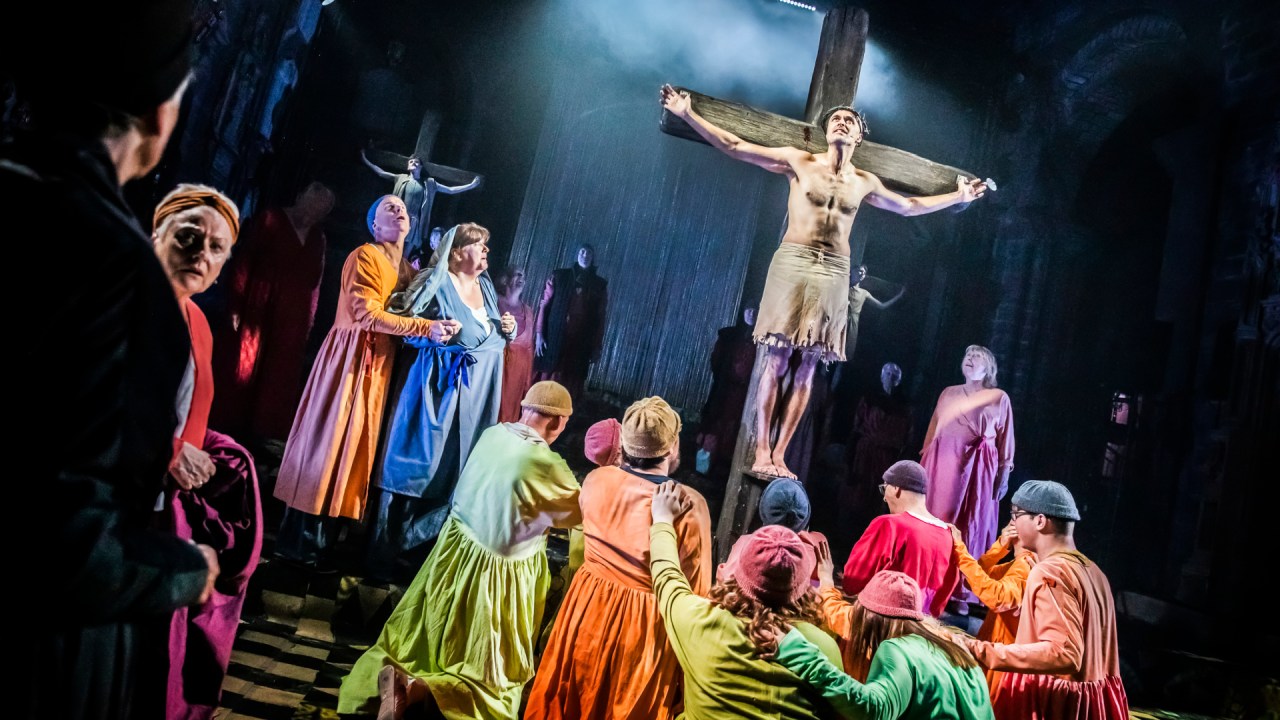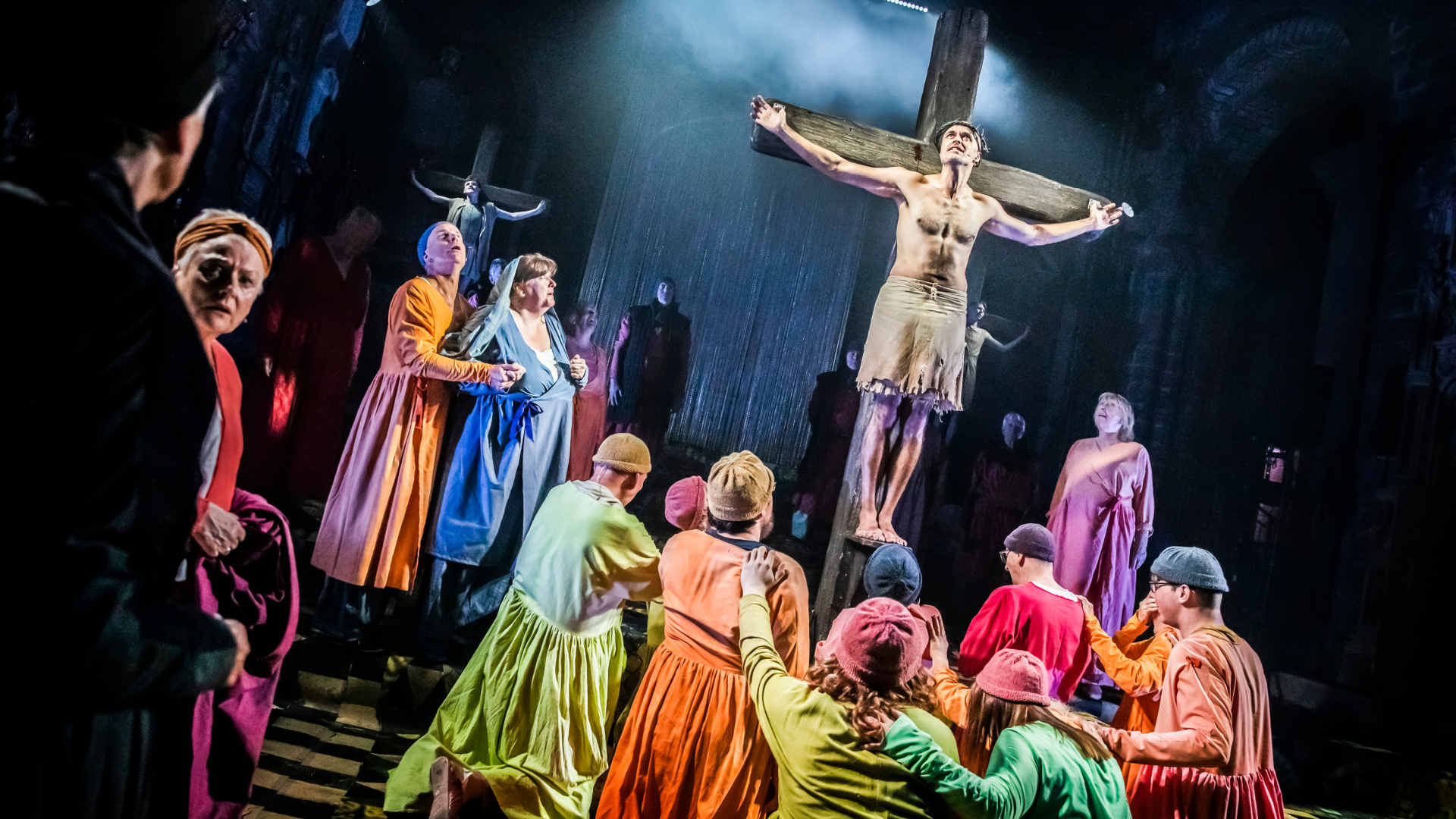Hang around for long enough at Chester Cross, and theatre is pretty much guaranteed. It’s a Saturday morning in May: a human statue holds his pose, a remote-control buggy zips about advertising the spring sale at MenKind and three connoisseurs of discount cider are making their views known from the bench outside St Peter’s Church. All normal for Chester, and when the Town Crier strides up, crowds gather on the first-floor Rows like the audience at a Tudor playhouse. Oyez! The people of the city seek permission to stage the latest cycle of the city’s medieval Mystery Plays and tradition dictates that the Banns be read in public some six weeks before the first performance.
You might wonder what tradition has to say about what comes next. An accordion strikes up and the players march around the corner to the steps of the town hall, where the mayor, in full regalia, is given a blast of jazz sax before announcing that the production may proceed. Everyone applauds; some people laugh. Well, it’s funny. But what’s the point of a tradition if you can’t reinvent it?
‘A lot of people in this year’s cycle have never done it before and that’s vital if something is going to stay alive’
The Chester Mystery Plays are a collection of 24 short biblical dramas by unknown writers, performed by the guildsmen of the city between the late 13th century and the reign of Elizabeth I for a public who had no access to scripture in English. York, Coventry and Wakefield have Mysteries too, but Cestrians will assure you that theirs is the most complete surviving text, and the only cycle still to be staged, as a matter of course, every five years.
So this year’s cycle will be the first since 2018 and it’s a piece of community theatre on a city-wide scale.








Comments
Join the debate for just £1 a month
Be part of the conversation with other Spectator readers by getting your first three months for £3.
UNLOCK ACCESS Just £1 a monthAlready a subscriber? Log in